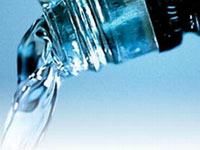Russians may have specific genes that allow them to drink more vodka
People keep drinking alcoholic beverages no matter what they may read and hear daily about the detrimental effects of alcohol abuse. There are numerous popular beliefs and deep-rooted rumors with regard to drinking habits and techniques, and lots of people (regardless of their cultural background and occupation) seem to believe them. Vladimir Nuzhny, head of a toxicology laboratory at the Research Institute of Drug Abuse Studies agreed to comment on some of those widespread myths about drinking.

Russians have been drinking for ages, they have a special genetic makeup, and therefore they can drink more than foreigners, suffering less from the aftereffects of alcohol consumption
“Russia’s long and eventful history of drinking is irrelevant to the case. However, Russians really differ from Europeans in terms of their genetic makeup that codifies the ferments which oxidize alcohol. That’s why Russians seem to be more resistant to the effects of inebriation than foreigners. For instance, a German would be completely drunk after downing a tall glass full of vodka. On the contrary, a Russian is likely to ask for a refill.
The risks associated with drinking are a lot higher for peoples of the Mongoloid race. The activity of the second ferment in an alcohol oxidization chain of their genetic makeup is diminished. Therefore, members of the Mongoloid race are more prone to getting drunk on a very small quantity of alcohol. I don’t by any means try to underestimate the effects of alcoholic beverages when it comes to Russian drinkers. Alcohol is oxidized at a faster rate in the bodies of our compatriots. As a result, the Russian liver accumulates acetaldehyde, a product made during the digestion of alcohol, at an equally faster rate. Acetaldehyde is a very toxic compound, a thousand times more toxic if compared to pure alcohol.”
Vodka is the safest drink for one’s health because vodka is purer than whiskey or brandy
“Abstaining from the use of alcohol would be best for one’s health. Opt for natural grape wine if you want to minimize damage to your body. All that talk about ‘crystal-clear’ vodka being a less dangerous drink for one’s health is just a myth.
Studies show that those drinking strong alcoholic beverages made from rectified alcohol (which is purer from the chemical point of view) are quicker to become alcoholics than those who consume strong alcoholic drinks distilled from wine of grapes, for example. It’s harder for a rehab patient to beat the dependence on vodka during treatment.
Liquors that are made by the process of distilling malted grain or wine of grapes and other ingredients (whiskey or brandy, gin, grappa etc.) contain residual natural micro-impurities, which have a powerful beneficial effect on the human body. The impurities protect the vital organs of the human body (including its cardiovascular system) against the harmful effects of pure alcohol.
It’struethatasmallamountofliquor(30-50mlofalcohol)canbeusedasanexcellent remedy for relieving stress and preventing (to some extent) cardiovascular diseases and radiation sickness. At the same time, the above are the only beneficial effects of alcoholic beverages provided those are consumed in moderation. Taking into account that moderation is not a popular concept in this country, I’d like to stress the point that alcohol abuse leads to alcoholism, and causes irreparable damage to one’s liver, heart and mind.”
The following animals come in handy for typifying three stages of human inebriation: lion, monkey, and swine
“In fact, there are four stages of inebriation as defined by specialists in drug abuse treatments. The first stage brings about anxiety suppression. On reaching the second stage, an individual will be filled with elation, he would be inclined to associate with others, sing, dance and have fun.
Things begin to slide downwards fast once the third stage of inebriation occurs: an individual is unable to coordinate his body’s movements, he feels increasingly flabby and sleepy. The fourth stage results in alcoholic narcosis. Needless to say, those who eat little or no food while drinking strong alcoholic beverages will be the first to reach the fourth stage.”
Drinking soda after a vodka toast is no good; you’d better eat something instead
“You should eat and drink after drinking each toast, there’s no doubt about it. Eating while drinking will help to slow down the absorption of alcohol from the stomach into blood. Liquids will help to speed up the processing of alcohol in your liver, which will be able to expel toxins from your system a lot quicker. But stay away from beer chasers or soda – use juice or plain water after drinking alcohol.”
Taking a hair of the dog that bit one e.g. 50 grams of vodka is the best way to cure one’s hangover in the morning
“The above method is good for putting off the onset of more serious aftereffects of alcohol consumption. Drinking some vodka on the morning after may as well lead to binge drinking, it can effectively shape your pathological dependence on alcohol, no matter if you’re a true soaker or a potential dipsomaniac.
You should cure your hangover by lying in; hit the sack and have some rest. If you can’t afford the luxury of staying in bed for several hours, try some of the most popular remedies. For instance, have a glass or two of sour cabbage or pickled cucumbers brine, drink plenty of fruit juices (apple juice can work wonders), use effervescent aspirin tablets. Drink lots of kefir (yoghurt-like liquid food made from fermented milk). Here is the recipe of an effective remedy for curing a hangover. Incidentally, the recipe was reportedly invented by an alcoholic.
At first, you will need to brew half a liter of tea (medium strength). Put 4-5 tablespoons of honey into the brew. Squeeze one lemon. Drink till you feel better. The remedy is guaranteed to put you right.”
Andrei Belyakov
Translated by Guerman Grachev
Pravda.ru
Subscribe to Pravda.Ru Telegram channel, Facebook, RSS!




